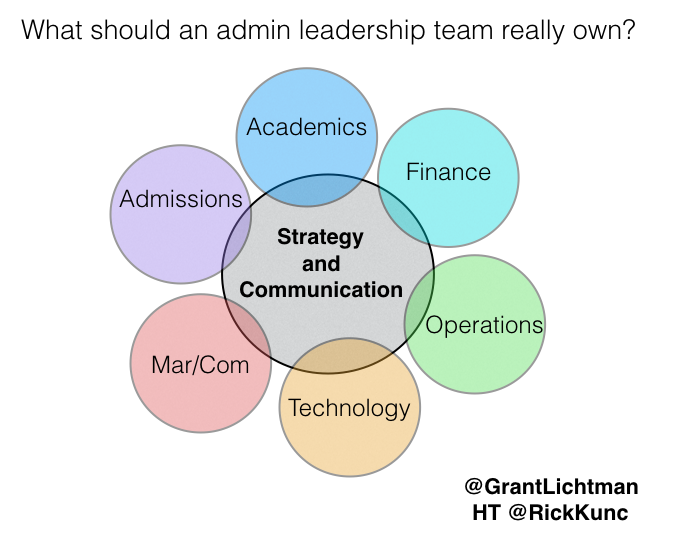“You made my head hurt”, the 10th grader told me during reflection of our three-hour learning block on how to observe, analyze, understand, and communicate about systems. He assured me he meant it in a good way, and that comment immediately went into my top-five all time moments as a teacher.
 It was my honor to visit All Saints’ Episcopal School in Ft. Worth for the day as a Visiting Scholar to the new Tad Bird Honors College, being created and directed by Dave Ostroff. I started the morning with the 16 sophomores who have volunteered and applied to be part of this special learning cohort. They are all reading and using my book, The Falconer, as a scaffold for a yearlong development of their skills in questioning, problem-finding, systems thinking, problem solving, and strategic and creational thinking. I have used this model with students as young as nine and as old as college; my day at ASES was nothing short of stunning.
It was my honor to visit All Saints’ Episcopal School in Ft. Worth for the day as a Visiting Scholar to the new Tad Bird Honors College, being created and directed by Dave Ostroff. I started the morning with the 16 sophomores who have volunteered and applied to be part of this special learning cohort. They are all reading and using my book, The Falconer, as a scaffold for a yearlong development of their skills in questioning, problem-finding, systems thinking, problem solving, and strategic and creational thinking. I have used this model with students as young as nine and as old as college; my day at ASES was nothing short of stunning.
In those three hours, I talked for less than 30 minutes the entire time. The students utterly owned their own learning. They took a huge step to becoming self-evolving learners, not who WE want them to be but who THEY want to become.
Randomly grouping the students, I asked them to walk to their campus butterfly garden, and in 10 minutes observe and understand a square meter of that garden. Back in the open-space learning area off the library, we gave each group access to paper, walls, windows, sticky notes, and markers and ten minutes to synthesize their understanding of that garden system, and then two minutes to report their findings. They did a great job, but all would admit their reports were narrow and simplistic.
 Then I asked them to gather for about 20 minutes of teacher-led instruction. I introduced them to the elements of systems observation and analysis in The Falconer: what to look for and how to describe any system, from a garden to a family, airport, bus station, new job, college, or beaker in a lab.
Then I asked them to gather for about 20 minutes of teacher-led instruction. I introduced them to the elements of systems observation and analysis in The Falconer: what to look for and how to describe any system, from a garden to a family, airport, bus station, new job, college, or beaker in a lab.
We repeated the trip to the garden, and the first student to reach his spot climbed up a tree to get a different perspective of the system! After the same 10 minutes on site, and the same 10 minutes to develop their articulation and presentation, They noted the tangible and intangible elements of their respective plots, relationships, boundaries, what is gained and what is lost. They drew graphic representations and pictures to help others see what they had seen. One team air-dropped iPhone photos to the other teams. Every group took a quantum leap forward from their first attempt.
 Then I pushed them into a completely unfamiliar setting, quoting my friend John Hunter who sometimes has to tell his World Peace Game students: “I don’t know how you will succeed in this next challenge, but I have complete faith that you will.” We showed the students about nine minutes of random newsreel video clips from rural Afghanistan in the last decade. I asked them to use their new tools as systems thinkers to understand and communicate this completely unfamiliar and highly ambiguous system “rural Afghanistan”. They went straight to work, and as our time together ran out, each group had generated a wall hanging of sticky notes, the start of affinity groupings like “environment”, “health care”, “poverty”, “impact of violence”, and more. I don’t think I had given more than a dozen words of actual instruction to the group during this last session. (The class will complete this systems framing next week and I will post their findings here.)
Then I pushed them into a completely unfamiliar setting, quoting my friend John Hunter who sometimes has to tell his World Peace Game students: “I don’t know how you will succeed in this next challenge, but I have complete faith that you will.” We showed the students about nine minutes of random newsreel video clips from rural Afghanistan in the last decade. I asked them to use their new tools as systems thinkers to understand and communicate this completely unfamiliar and highly ambiguous system “rural Afghanistan”. They went straight to work, and as our time together ran out, each group had generated a wall hanging of sticky notes, the start of affinity groupings like “environment”, “health care”, “poverty”, “impact of violence”, and more. I don’t think I had given more than a dozen words of actual instruction to the group during this last session. (The class will complete this systems framing next week and I will post their findings here.)
We gathered for a quick reflection: “You didn’t talk at us…we got to do things more than once and get better at it…we decided how to approach the problem…when you told us what we did wrong it did not seem negative at all…you made my head hurt.”
My next two posts will report on similarly powerful experiences with the freshmen and seniors at ASES!




[…] http://learningpond.wordpress.com/2013/10/26/you-made-my-head-hurt-highest-praise-from-student-to-te… […]